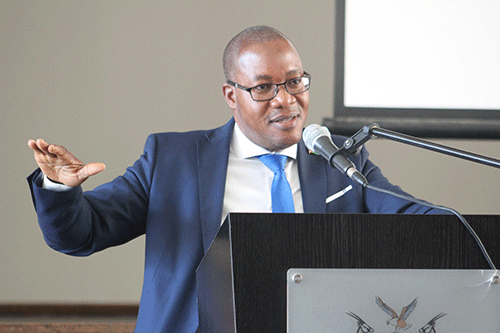Despite over 3 000 patients seeking mental health services at the nearby Rundu hospital, communities in Kavango West do not like the idea of having a mental health institution erected in their area.
The health ministry’s executive director Ben Nangombe told New Era that they are committed to improving all aspects of healthcare, including mental health, and previously envisioned the construction of a mental health facility at the Nankudu Hospital in the Nkurenkuru district.
“Mental health is unfortunately stigmatized, and the local community around Nankudu Hospital did not take kindly to the prospect of having a mental health facility in their area,” said Nangombe.
He added that beside that hiccup, the facility was to be erected after the construction of a new hospital in Nkurenkuru, but the current adverse economic climate also delayed the onset of the project.
Nangombe stated: “The ministry has recognised the importance to de-stigmatise mental health problems through community education and involvement, giving the people a better understanding of mental health.”
The ministry has prioritised the construction of mental health facilities in the whole country. Though actual prevalence statistics are not available,
there were approximately 3 500
psychiatric-related visits to the Rundu Hospital’s outpatient and casualty departments in 2021.
“In the Rundu State Hospital, approximately 30% and 20% of patients admitted in the male and female
wards, respectively, have mental health problems,” he shared. Nangombe said with better understanding and the help
of other stakeholders, including the
media, it is hoped that communities will cooperate with the ministry when it embarks on the project of constructing mental health facilities, as this will be primarily for the benefit of the people in those areas. Clinical psychologist Ellen Nghikembua from the NeuroBloom Psychology Practice said community members probably made the decision to reject a mental health facility to be built in the region because of their attitude
towards mental illness.
“Perhaps it’s a lack of understanding of what mental illness is, as well as the causes of mental illness. Oftentimes, people do not want to be associated with mental illness because of the stigma associated with those who are struggling with mental health problems,” she noted.
Nghikembua added: “It’s honestly just psychoeducation and mental health awareness campaigns that will be able to debunk myths around mental health, that will be able to help people gain more insight into mental health matters.”
Sociologist Ellison Tjirera said the biggest distress in society is that mental health is seen as a spiritual issue rather than a medical one, which would pose greater challenges to how the country addresses mental health.
“Mental health is a condition that society never takes seriously. People see it as a part of it being a spiritual thing than a medical one. Instructions built to address these issues will be the last resort and once a patient is admitted, they are expected to recover fast and not stay there for long as it will bring shame to the family,” he added.
The academic noted that if one observes personal illnesses, people think they are bewitched, and society leaves it at that. This is prominent in the black culture, where people resort to spiritual cleansing and talking to the ancestors, or cases where rituals are performed at places like the holy fire.
Said Tjirera: “We can’t totally rule out that mental health issues are spiritual. You find circumstances where a person is unwell, rituals are performed, and animals are slaughtered. A while later, they turn out fine, but we can’t solely rely on that alone.”
He hinted that government and the relevant stakeholders should invest more in creating robust awareness campaigns that tackle and debunk myths around mental health issues.
“I don’t think society doesn’t want mental health services or institutions. I think the understanding thereof is different, and if more awareness is done, the narrative and cultural taboos that exist around mental health will be addressed. There is a dire need to inform or teach people that mental health issues are real and they can be treated,” he stressed.
The World Health Organisation (WHO) has noted that increased investment is required on all fronts: for mental
health awareness to increase
understanding and reduce stigma; for efforts to increase access to quality mental healthcare and effective treatments; and for research to identify new treatments and improve existing treatments for all mental disorders.
– psiririka@nepc.com.na


